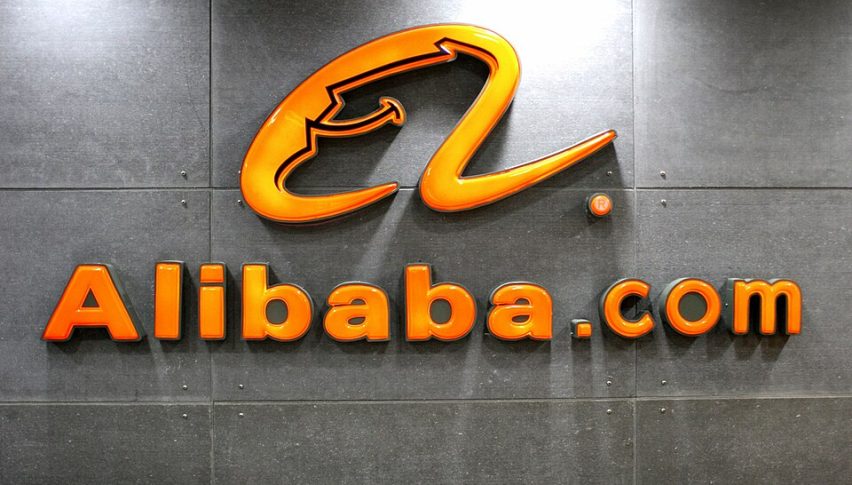Could the Alibaba AI Chip Burst the Tech Stock Bubble Similar to DeepSeek?
Alibaba’s surprise unveiling of a homegrown AI chip has rattled global markets, pressuring inflated AI valuations, while simultaneously...

Quick overview
- Alibaba's launch of a homegrown AI chip has disrupted global tech markets, leading to a decline in AI stock valuations.
- The announcement has boosted Alibaba's shares significantly, highlighting its shift towards becoming a leader in AI and cloud computing.
- Alibaba's new AI processor, produced domestically, aligns with China's goal of reducing reliance on foreign technology.
- Despite regulatory and geopolitical risks, Alibaba's transformation presents substantial long-term investment opportunities.
Alibaba’s surprise unveiling of a homegrown AI chip has rattled global markets, pressuring inflated AI valuations, while simultaneously fueling a powerful rally in its own shares and solidifying its transformation into a cloud and AI leader.
Shockwaves in Global Tech
Global technology stocks dropped sharply on Friday after news broke that Alibaba, China’s largest e-commerce and technology giant, had developed its own AI processor. The announcement triggered fears that the dominance of companies like Nvidia could be undermined, especially in the Chinese market, where access to advanced U.S. hardware has been restricted.
Many analysts compared the event to the disruptive debut of DeepSeek earlier this year, which caused a wave of revaluations across the AI sector and highlighted the fragility of inflated tech stocks. Similarly, we could see a burst of the AI bubble. Tech stocks did tumble on Friday after the news, but we will have to see when US markets open tomorrow, how they will behave throughout this week.
BABA Stock Chart Weekly – The Trend Is Shifting
The immediate consequence was a broad pullback in AI-linked equities, as investors recalibrated expectations for demand and competition. Yet, in stark contrast, Alibaba’s own stock surged as investors saw the development as a major step forward in China’s pursuit of technological independence and AI dominance.
Alibaba’s Strategic Shift Into AI
The newly developed processor marks a clear shift in Alibaba’s strategic direction. While the company’s earlier AI chip had relied on Taiwan Semiconductor Manufacturing Company for production, the new model is domestically produced in China and designed to be more versatile, capable of handling a wider variety of AI inference workloads. This not only provides Alibaba with a technological edge but also aligns with Beijing’s drive to reduce reliance on foreign suppliers in critical industries.
The move effectively positions Alibaba as more than just a retail and cloud company. It underscores its ambition to become a foundational player in China’s semiconductor landscape, expanding its influence well beyond e-commerce and into the heart of AI infrastructure.
Cloud Strength Bolsters Investor Confidence
Although Alibaba’s most recent earnings report showed overall revenue that slightly missed analysts’ expectations, the standout was its cloud division. Cloud revenue surged 26% year over year, powered by soaring demand for AI services. Investors immediately rewarded this growth, sending Alibaba’s Hong Kong-listed shares up by 19 percent to their highest level in three years, while its U.S.-listed ADRs leapt 13 percent in a single session.
The reaction highlighted a crucial shift in how markets now value Alibaba: instead of focusing primarily on its retail operations, investors are increasingly treating the company as a key beneficiary of the AI and cloud computing boom. Despite macroeconomic uncertainty and geopolitical friction, the results reinforced the perception that Alibaba is cementing itself as a critical part of China’s AI ecosystem.
BABA Stock Chart Daily – Technical Trend Points Higher
From a technical perspective, Alibaba’s stock has been on a gradual recovery path after a steep decline from its 2020 peak of $317 to the 2022 trough of $63.70, as Alibaba’s chairman Jack Ma was replaced forcefully with Joe Tsai. Over the past two years, shares have stabilized, moving in a broad trading range, and in 2025 the trend has started to tilt higher. The 50-week simple moving average has consistently acted as a support level during corrections, helping push the stock’s lows upward.
Friday’s double-digit surge following the chip announcement and strong cloud results was taken as a bullish signal by traders, with momentum now suggesting that the stock could soon challenge resistance around $148 to $150. A breakout above this level would signal a significant turning point, potentially ushering in a new growth phase.
Opportunities and Risks for Investors
Alibaba’s transformation from a retail giant into a cloud and AI powerhouse presents enormous long-term opportunities. The combination of its AI chip initiative and robust cloud growth suggests it could become one of the most important players in the next wave of technological advancement. However, this opportunity does not come without risk.
Regulatory oversight in both China and the U.S. remains unpredictable, geopolitical tensions could restrict future international collaborations, and the company’s dual exposure to two major economies makes it vulnerable to macroeconomic shifts.
For long-term investors, the potential rewards are significant, with Alibaba’s latest moves positioning it firmly within the key growth themes of the coming decade. Yet the volatility witnessed across the global tech sector on Friday also serves as a reminder that the road ahead will be uneven, with substantial swings likely as the AI race accelerates.
- Check out our free forex signals
- Follow the top economic events on FX Leaders economic calendar
- Trade better, discover more Forex Trading Strategies
- Open a FREE Trading Account
- Read our latest reviews on: Avatrade, Exness, HFM and XM



